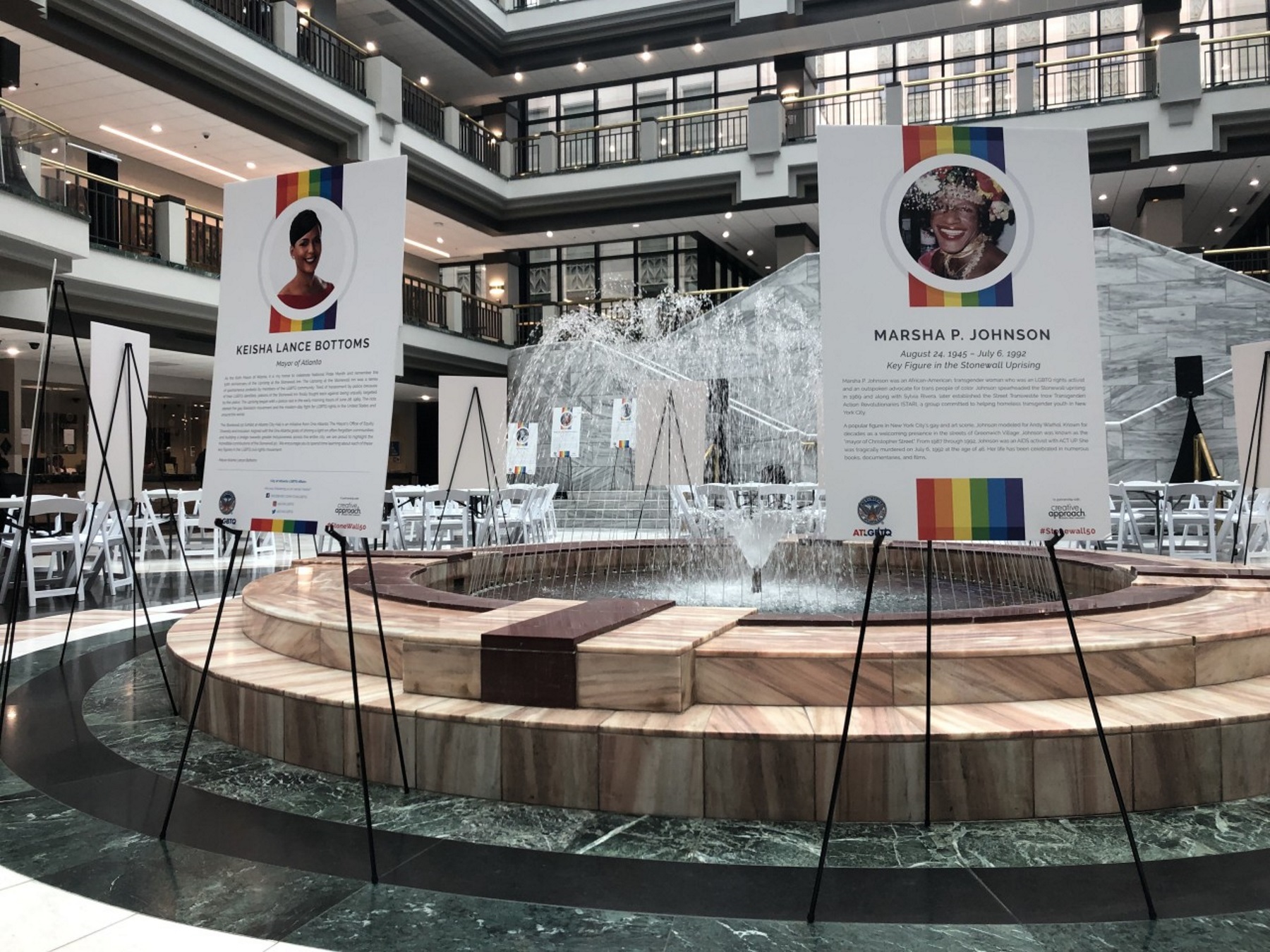As Tenants With HIV Face Eviction Threat, The City Of Atlanta Has Few Answers

Outside the Thursday meeting with Atlanta City Council members, City Hall was decorated for Pride Month, including posters of LGBTQ activists and Mayor Keisha Lance Bottoms. In the special meeting, a program that helps people with HIV cover their rent was being discussed.
Stephannie Stokes / WABE
Advocates call it a crisis. More than 200 or 300 people living with HIV in and around Atlanta could face eviction from their homes. And a special City Council meeting about the issue Thursday didn’t clear up concerns.
The rent money is tied up in a federal program called HOPWA — Housing Opportunities for Persons With AIDS — that the city is in charge of administering.
The federal government sends funding to the city of Atlanta, which distributes it to local providers. And they use the money to do things like help people with HIV cover their rent.
But recently, one of the providers stopped paying.
“It’s very stressful,” said one of the clients of the provider, called the Living Room.
The client didn’t want his identity shared. He’s dealing not just with HIV but kidney failure. And now he has an eviction notice on his mind.
“It’s not fun to think about. Especially when taking medicines, you have to be on a time schedule,” he said. “And if you don’t know where you’re living at, what could you do?”
The Living Room hasn’t paid his rent for two months.
Atlanta Legal Aid attorney Stefanie Sparks warned City Council members that many more are in a similar position.
“We’ve had almost 50 clients in the last two weeks with evictions or potential evictions scheduled,” Sparks said.
Sparks said there is only so much her group of lawyers can do to stop the eviction process.
And it’s only going to get worse, she said. The Living Room is one of the largest providers of housing assistance for people with HIV.
“July rent is due next week,” Sparks said. “And there’s another flood of evictions that are going to come.”
But it’s not clear if the problem lies with the Living Room — or with the city.
The Living Room’s interim director of programs, Daniel Driffin, was at the meeting. He said the nonprofit is still waiting for Atlanta to approve its funding.
“I haven’t heard anything. I’m sitting in the dark,” Driffin said.
Providers have long complained that the city is slow to pay them.
City Council member Matt Westmoreland asked Rasheeda Jordan with another nonprofit, Positive Impact Health Centers, if her group had outstanding reimbursements.
“Absolutely,” Jordan said. “North of $300,000.”
She said that limits the provider’s ability to help out clients caught in the Living Room’s situation.
“We had in March 264 referrals. Our average referral is 88-90,” Jordan said. “We don’t have the funding to meet that need.”
The city’s director of Grants Management, Karen Carter, told council members it has funding requests under control now.
“There are some still being evaluated, but we are pushing them through,” Carter said.
She didn’t say if that included the Living Room’s request. And the city didn’t respond when asked why it hadn’t paid the nonprofit yet.
The Living Room’s client said he noticed issues with the provider since he joined the program in February. It was slow to handle paperwork and paid rent late.
But he said an eviction would leave him with no options.
“I wouldn’t have anywhere to go. I’d be on the street,” he said.








